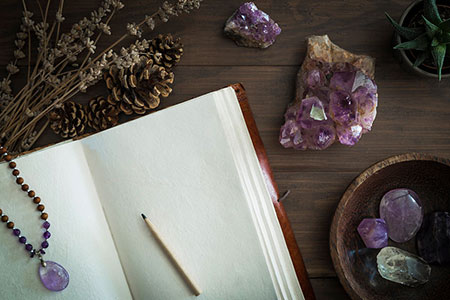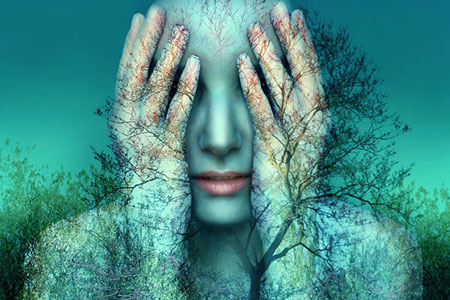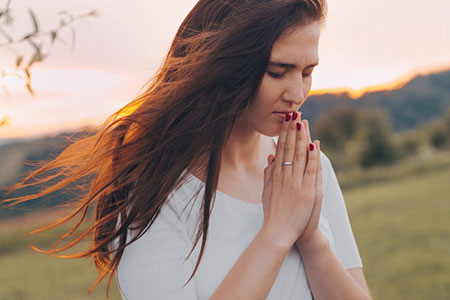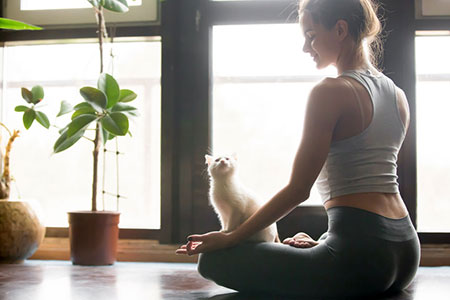self-talk
The Benefits Of Daily Journaling
 I have always loved writing, since I was a little girl. However, as I grew older and became a wife, mother and business owner, I found I no longer didn’t have enough time to follow my passion for putting pen to paper. During the pandemic I suddenly had more time on my hands. Not only did I discover the art of journaling during this time, but I also learned a lot about myself in the process.
I have always loved writing, since I was a little girl. However, as I grew older and became a wife, mother and business owner, I found I no longer didn’t have enough time to follow my passion for putting pen to paper. During the pandemic I suddenly had more time on my hands. Not only did I discover the art of journaling during this time, but I also learned a lot about myself in the process.
I am now the proud owner of a fitness journal, a gratitude journal and a well-being journal. No, I do not write in each of them every day, but I do journal at least once every day, usually before bedtime. I have found that the benefits of journaling to be manifold.
First and foremost, I find journaling to be a form of meditation. Let’s face it, traditional meditation, as empowering as it can be for some, is not for everyone.
Journaling, on the other hand, is not only a form of self-expression (which can be very stress-relieving, to say the least), but it also connects you to the deepest parts of your inner being that may otherwise be drowned out by daily life. Journaling allows you the quiet time to reflect, truly express yourself, and look within – where the answers to life’s problems can often be found when one is in a calm state.
Journaling also trains the brain, because you use both hemispheres of your brain simultaneously. Journaling employs the right brain, by expressing our creativity and feelings, as well as a left brain use of analysis and critical thinking. Journaling also helps to improve one’s memory.
Have you ever heard of RAS, otherwise known as the Reticular Activating System? Apparently, when we write by hand, this stimulates RAS cells and whatever we are focusing on at the forefront of our minds becomes processed into its deeper recesses. Therefore, it is imperative that when writing, we remind ourselves of how important the words are that we are writing – even if they are to ourselves!
Journaling can help us learn from past mistakes. When we record a past experience and reflect on the lessons we have learned from it, it moves us forward. Drawing upon these new insights, we can then approach similar issues or problems more effectively and secure a better end result.
Do You Follow Your Head, Or Your Heart?
 As a practicing astrologer, I often assist clients who are facing the head versus heart dilemma. Should they go with what their head is telling them, or should they follow their heart?
As a practicing astrologer, I often assist clients who are facing the head versus heart dilemma. Should they go with what their head is telling them, or should they follow their heart?
“My head tells me he’s so perfect for me. He is my dream guy on paper, ticks every box. He has a successful career, earns a solid income. He is someone my kids would love, the male role-model they so desperately need,” a client recently explained.
“But my heart feels so hesitant, like its beating for someone else I haven’t met yet. He is a great guy, but there no butterflies. It doesn’t make sense. I don’t understand why my heart is yearning for someone different?” she lamented.
“I can’t afford to be picky and my friends and family tell me I’m crazy to even question this incredible guy who seems to tick all the right boxes, but doesn’t put a flutter in my heart!”
The question is indeed, why would one trust an illogical feeling that can’t be quantified and measured using the neat little pros and cons list of the mind? In my Astrology practice, I have see this conundrum play out many times.
Interestingly, I find this vexing situation is often related to a Mercury Square Moon aspect in someone’s chart. Such a person will often take one side over the other, usually the head over the heart, and this habitual battle can result in a lifelong pattern of bad choices.
Culturally we’ve also been conditioned to always choose reason over feelings. And what others think often also factors too highly in a personal choice that’s best made selfishly. In my opinion, relationships are one of the few areas in life where we get to be selfish, because if we choose someone who will not make us happy, everyone will suffer in the end.
We are often told ‘trust our gut’ for good reason. Your intuition or inner guidance system knows far more than you do! But like a muscle, we must build it up, we must work it, flex it, to clearly register the signals it’s sending us.
The Healing Embrace Of Mother Nature
 Throughout my life, especially during the most difficult times, the one thing I have always been able to count on is Mother Nature. Gaia, the Great Mother, has always served me well.
Throughout my life, especially during the most difficult times, the one thing I have always been able to count on is Mother Nature. Gaia, the Great Mother, has always served me well.
I grew up in California, where there is an abundance of water: water falls, creeks, rivers, lakes and the spectacular Pacific Ocean. I had quick and easy access to hiking paths, and other adventures and recreational activities in the great outdoors. In fact, next to dance, hiking was my favorite form of exercise in my teenage years.
When times are difficult, I have always sought out nature. It is so much easier to block out other people’s negativity when all you can see is God’s magnificent creation. It’s divine intent, joy, beauty, harmony, balance, and timelessness.
In the arms of Mother Nature, there is the freedom to tune out all the noise and toxic energy of others…and just hear the voice of Go. It helps you to center yourself, and clear out the negative energy and drama other people sometimes bring into your life.
I find that those of us who live in large cities and urban areas are more likely to get swallowed up by the negative energy of others. We can simply not get away from it in our daily lives. Going back to a home every day, where there is still a lot of radiation and traffic noise, will not let you heal or reenergize.
We all need to take the time to hear our inner voice. No cars, no talking, no noise. Just our own thoughts and inner guidance. We must make time to just hear the voice of spirit within. Otherwise, the voice of the ego that we hear in our head becomes toxic with negative self-talk.
God’s natural world is a temple of healing, a shrine of grace, a sanctuary for the burdened soul. This is why nature must also be protected. By protecting nature, we are protecting God. Mature is a gift to us from Source. It belongs to all of us, including future generations.
How Sticky Notes Can Change Your Life
 We live in a world where we are bombarded with negativity every day. Whether it comes from social media or the mainstream news, it’s easy to feel like you’re drowning in a sea of negative information and fear-based messages. And the more we are exposed to all this negative input, the more we internalize it, until it becomes part of our self-talk and general state of mind.
We live in a world where we are bombarded with negativity every day. Whether it comes from social media or the mainstream news, it’s easy to feel like you’re drowning in a sea of negative information and fear-based messages. And the more we are exposed to all this negative input, the more we internalize it, until it becomes part of our self-talk and general state of mind.
Fortunately, the solution to some of life’s most complex challenges can often be found in the most mundane. Enter the simple sticky note! By writing down simple, positive affirmations or slogans on a bunch of sticky notes, and placing them anywhere you will see them frequently, you can significantly change your inner dialogue from constant negativity and nay-saying to one of possibility, hope and optimism.
Choose simple, short affirmations that resonate with who you are, and what you truly want in life. Whether it’s something like, “I am worthy,” or “Love surrounds me,” or even, “I will get that dream job,” it will inspire you to change the narrative and negative self-talk each time you read one of these short statements out loud.
This technique always reminds me of the famous opening scene of the television cartoon, The Simpsons, with Bart Simpson writing a phrase over and over on the chalkboard. There’s actually some method in the madness of this old-fashioned way of disciplining schoolkids. When our brain repeats a word or phrase over and over again, new neural pathways are created with new associations. Saying something once or twice only, we’re just as likely to forget it. But if it’s something we repeat many times, our brain will literally change over time, and so will our patterns of thought, feeling and action.
It’s been shown that establishing a new habit, or making new behavior automatic, takes on average about two months. Try placing your sticky notes in those places you spend most of your time every day: in your workspace, your car, on the bathroom mirror, the kitchen refrigerator, or on your bedside table. The more you see (and repeat) the words written on them, the more you will start to transform your thinking.
Simple Self-Care To Improve Your Well-Being
 We are living in stressful times, but this can also be a time of reflection, and looking into the future, making plans. If you are currently feeling depressed, or in despair, there are many simple things you can do to ease your mind, or lift your spirits.
We are living in stressful times, but this can also be a time of reflection, and looking into the future, making plans. If you are currently feeling depressed, or in despair, there are many simple things you can do to ease your mind, or lift your spirits.
To begin, take some time to reflect on how you are feeling. Often we are unaware of how things are really affecting us. Consider how you may be choosing to perceive things, and whether you need to take some time to truly process some of your thoughts and feelings. Just recognizing that you are sad, afraid, frustrated, or depressed, is already a step in the right direction.
Remind yourself also that some of your thoughts and feelings may not be unusual in these unusual circumstances. Many people are going through the same thing at the moment. You are definitely not alone.
Each of us react differently to unpleasant life events. Try to stay positive and not be so down on yourself. Try to be more proactive and take time to reflect on what is most important in your life. Meditation, and other forms of spiritual practice, is a great way to relieve stress in your life.

